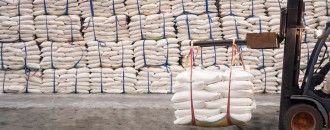
US's leading railroad agency confirms freight railroads provide vital connection to trade
The Dollar Business Bureau
The Association of American Railroads, America’s leading railroad policy, research, standard setting and technology organization of the rail industry has in its latest report confirmed that freight railroads are deeply connected to International Trade. The report reveals that at least 50,000 US Rail jobs , 35% of rail revenues and 42% of carloads and intermodal units are directly supported by international trade.
The report which was released on March 29, says approximately 50,000 rail jobs accounting for more than $5.5 bn in annual wages and benefits depended directly on international trade emphasizing the need for trade agreements with countries and not rushed policy modifications as President Trump’s recent statements revealed.
Many in the political circles agree that the data provides a reminder that , ‘the global economy is firmly established and cannot be easily undone with rushed policy modifications. And resorting to such rushed deliberations could prove to be counterproductive on American workers and various industries – especially the freight rail network that touches nearly every manufacturing unit, wholesale, retail and every resource based sector of the US economy.’
Making a detailed statement on the report, AAR President and CEO Edward R. Hamberger said, "Efforts that curtail overall trade would threaten thousands of U.S. freight rail jobs that depend on it and limit essential railroad revenues used to modernize railroad infrastructure throughout North America. "For a highly capital-intensive industry that has spent $26 billion annually in recent years, private investment is the lifeblood of a freight rail sector that must devote massive sums to safely, efficiently and affordably deliver goods across the economy. Upending the ability of railroads to do so by undermining free trade agreements that have done far more good than harm would have far reaching effects."
The report based its findings by analysing the data of rail movements captured in the 2014 Surface Transport Board (STB) Waybill Sample, US government data and the data taken from ports and other reliable sources. The report detailed that in 2014, 329 million tons of exports was handled and more than half of it nearly 171 million tons of imports was handled by rails alone.
The movement of trade through rail included export of coal out of ports in Maryland, Virginia, the Great Lakes and the Gulf Coast; forest products and paper were imported from Canada into the Midwest and paper products were exported from the Southern states of US; imports and exports of automotive products from Canada and Mexico were brought into many auto factories in US states; consumer goods from Asia are brought into US through containers connected to ships in Los Angeles, Long Beach, Newark, Norfolk, Tacoma and Savannah; plastics are taken by rail and shipped to Europe and Asia from Texas and Louisiana.
Hamberger added that the above trade numbers validated that US policy makers need to tread with caution in their quest to reverse some impacts of globalization.





 to success.
to success.